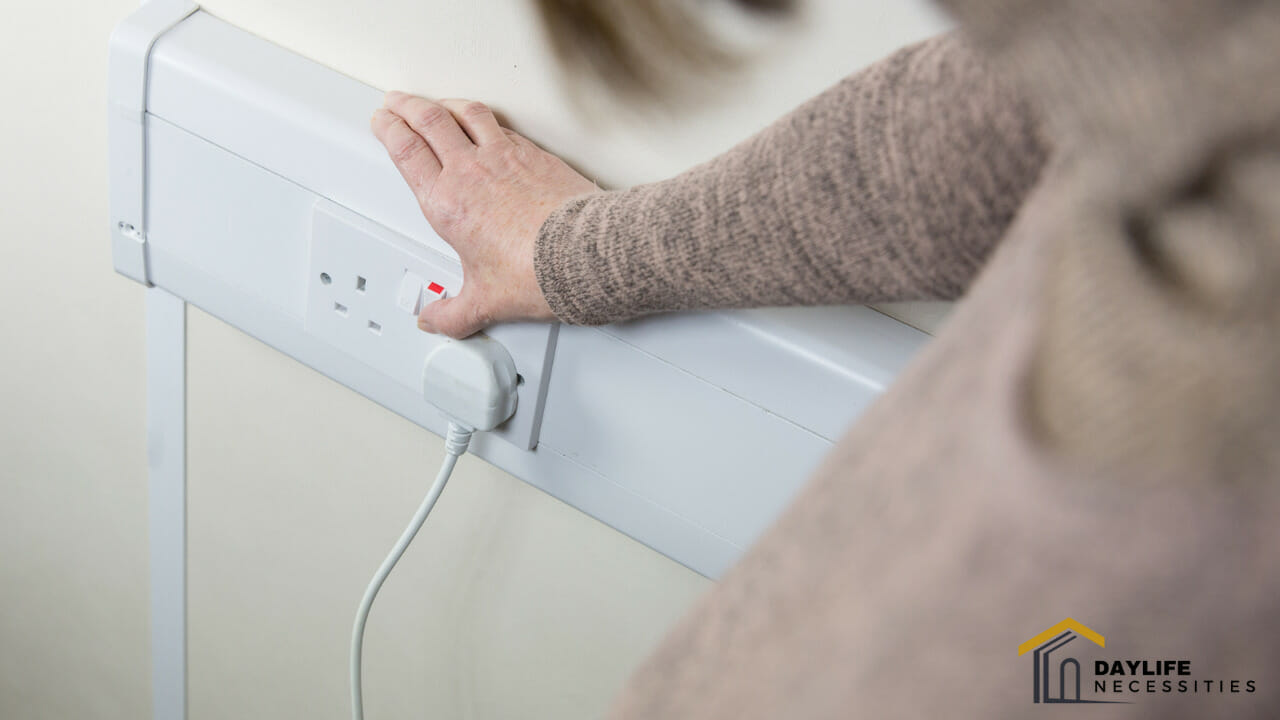Safety must always come first while using household appliances. One of these crucial equipment, which is required to preserve the freshness of food and preserve a healthy living environment, is the refrigerator.
We’ll discuss why using a refrigerator with a standard extension chord is not a good idea in this article.
We’ll go through potential hazards, performance difficulties, and best practises for keeping your refrigerator running safely and efficiently.
The Hazards of Using Regular Extension Cords
Regular extension cords, while suitable for many devices, are not designed to handle high-wattage appliances like refrigerators.
The primary reason for this lies in the thinner wiring used in most extension cords, making them susceptible to failure and overheating when subjected to the constant power demands of a refrigerator.
1. Risk of Fire and Performance Issues
When a refrigerator is connected to an insufficient extension cord, the voltage supplied to the appliance may drop significantly.
This voltage drop can lead to various performance issues, including:
- Reduced cooling efficiency, resulting in inadequate preservation of perishables.
- Strain on the compressor, leading to potential damage and shortened lifespan.
- Increased energy consumption, which can escalate utility bills.
Moreover, such voltage fluctuations may cause the refrigerator’s motor to work harder, leading to premature wear and tear and ultimately impacting its overall performance.
2. Exposed Wires Vulnerability
Another crucial factor to consider is the vulnerability of exposed wires in regular extension cords.
If the extension cord sustains damage or is subjected to environmental stress, it can lead to electrical hazards, such as short circuits or electric shocks.
A refrigerator’s constant movement or repositioning, for example, can inadvertently damage an extension cord over time.
Best Practices for Safe Refrigerator Usage
While avoiding regular extension cords altogether is recommended, there are instances where it may be unavoidable. To mitigate risks, adhere to the following best practices:
1. Choosing the Right Extension Cord
If you must use an extension cord, prioritize safety by selecting the appropriate type. Opt for a grounded extension cord (3-prong plug) with a wire gauge that can handle the refrigerator’s power requirements.
A thicker gauge will better accommodate the high-wattage demands and reduce the risk of overheating.
2. Consider Length and Rated Wattage
Ensure that the extension cord’s length is sufficient for your needs, but avoid using excessively long cords as longer cords can lead to greater voltage drops.
Additionally, check the extension cord’s wattage rating to ensure it matches or exceeds the refrigerator’s power consumption.
3. Regular Inspection and Maintenance
Regularly inspect the extension cord for any signs of damage or wear. If you notice any fraying, exposed wires, or other defects, promptly replace the cord to maintain safety.
4. Ideal Positioning Near Grounded House Socket
The safest approach remains positioning your refrigerator near a grounded house socket.
This eliminates the need for extension cords altogether, significantly reducing potential hazards.
Read More:
- Top 10 Best Stain for Outdoor Wood Furniture in 2023 : Ultimate Protection
- How to Quiet Garage Door and More Secure: Our Expert Guide
- 5 Best Water Filter for Bathtub Faucet in 2023- Enjoy Pure & Clean Bathwater!
- Top 5 Best Sheets For Dreamcloud Mattress in 2023: A Comprehensive Review
Conclusion
The safe operation of your refrigerator is paramount to ensure the longevity of the appliance and the protection of your home and family.
Avoid using regular extension cords, as they pose significant risks to both the refrigerator’s performance and your household’s safety.
Instead, opt for grounded extension cords with adequate gauge, length, and wattage ratings if the use of an extension cord is unavoidable.
Ultimately, prioritizing safety and following these best practices will ensure your refrigerator operates optimally, providing you with peace of mind and efficient food preservation.




